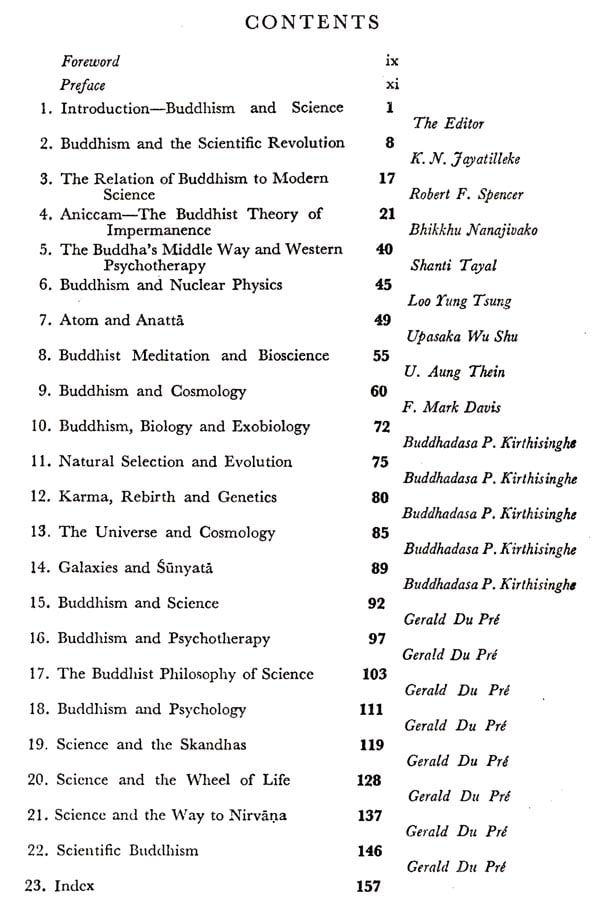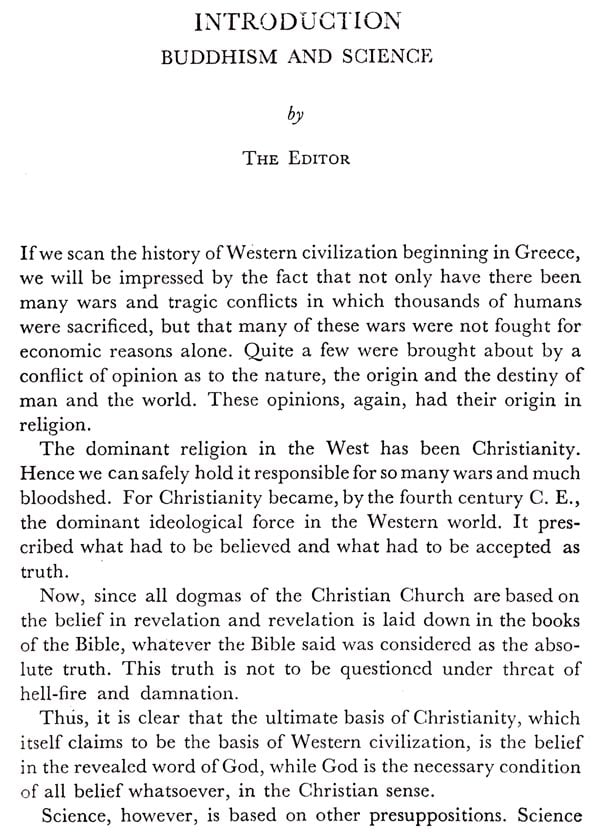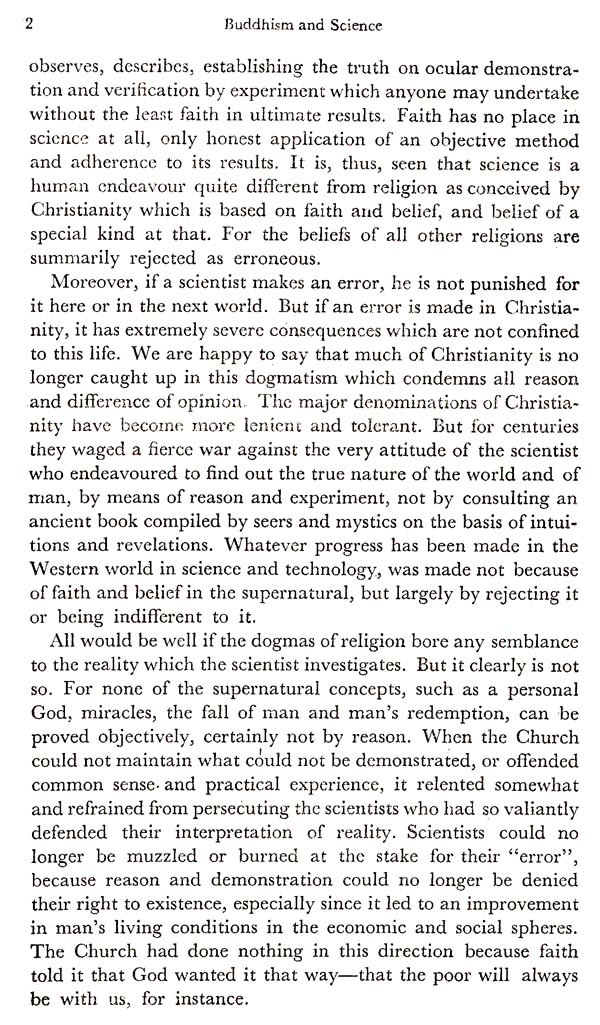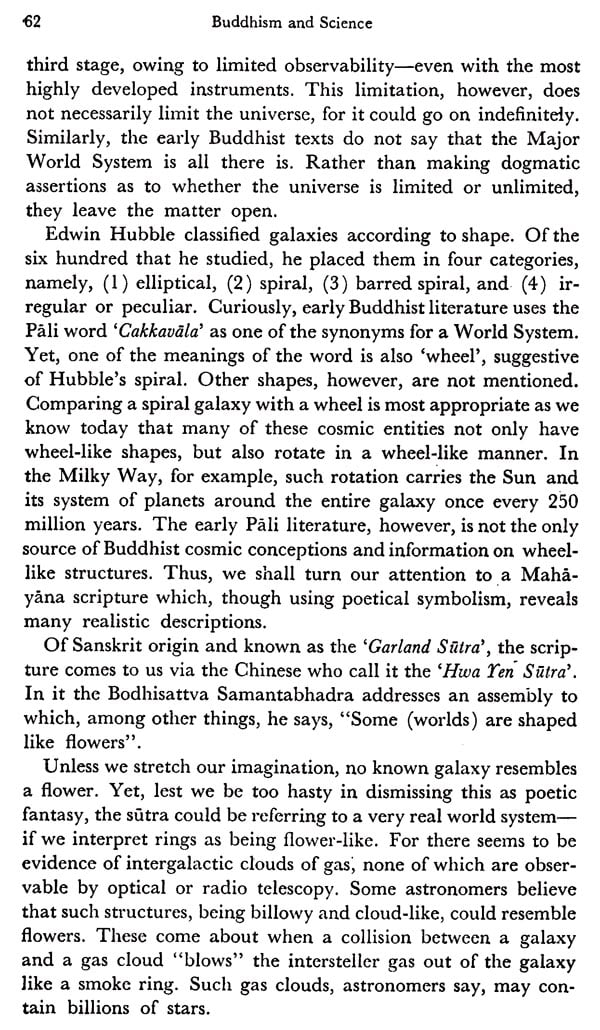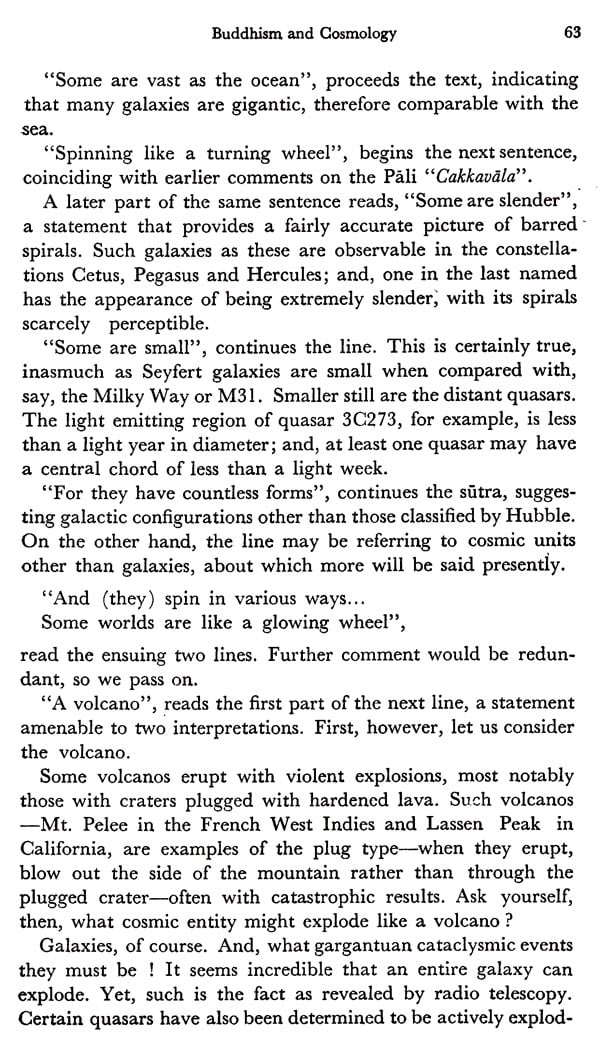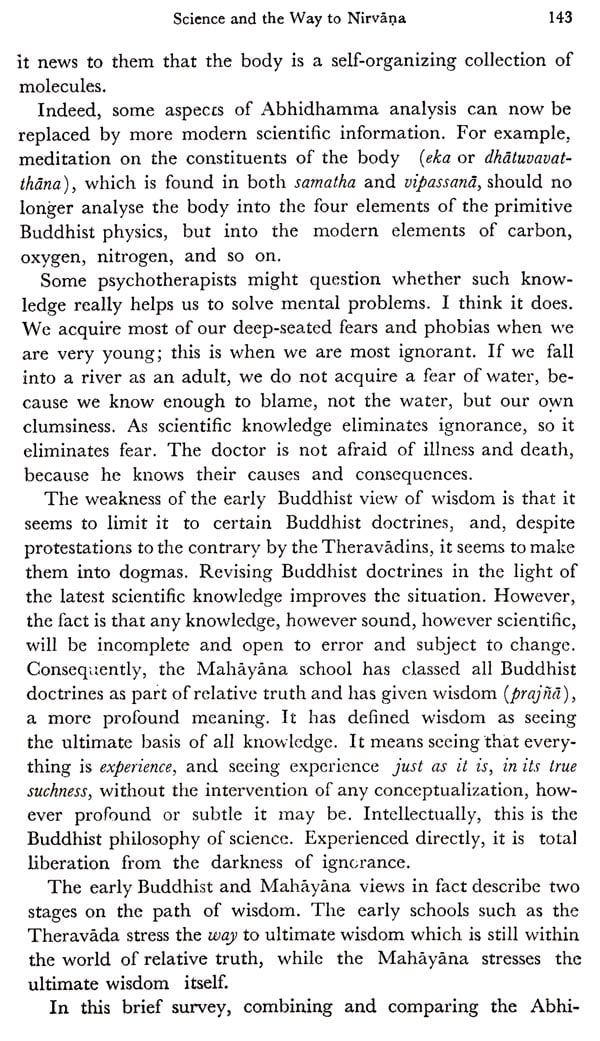
Buddhism and Science
Book Specification
| Item Code: | NAR491 |
| Author: | Buddhadasa P. Kirthisinghe |
| Publisher: | Motilal Banarsidass Publishers Pvt. Ltd. |
| Language: | English |
| Edition: | 2015 |
| ISBN: | 9788120808024 |
| Pages: | 175 |
| Cover: | HARDCOVER |
| Other Details | 9.00 X 6.00 inch |
| Weight | 340 gm |
Book Description
Buddhism and Science is a compilation of a few learned articles on the subject. Dr. Buddhadasa P. Kirthisinghe, who is the Editor as well as one of the principal contributors, is a well known interplanetary biologist and evolutionary scientist having had more than 30 years' experience of exploring scientific knowledge, during which time he has also done Dharmaduta work in the West, particularly in North America. It is fortunate that a man with such avast legacy has been able to coordinate modern scientific thought with the Buddha Dharma. He has shown remarkably well how the revolutionary theories of Charles Darwin and others blend with the Dharma (Buddha's teachings). Neither the evolutionists nor the Buddhists recognize that the world, or even the mighty universe, was created by a god. Thus, the rejection of an Atta (soul) by the Buddhists, fascinates the evolutionists: if man has a soul, then the animal should have had it first, they claim.
Professor Fred Hoyle of Cambridge University believes in a steady state of the universe, with no beginning and no end. These concepts have fascinated the Buddhists from very early times. The ancient concepts that life exists on other planets, sometimes in higher or lower forms are also accepted by modern astronomers. Some cosmologists believe our own galaxy has over 300,000,000 civilizations, which confirms Buddhist beliefs, modern and ancient.
We do not generally speak about religion and science in the same or amiable context. In fact, science and religion are, rightly or wrongly, still being considered as opposite poles.
When, therefore, Buddhism, which is very often and somewhat erroneously regarded as a religion instead of an ethical way of life and mode of thinking, is compared in its underlying philosophical and metaphysical teachings with the concepts of modern physics and biology, most people will assume a skeptical attitude. They may refer to such attempts graciously as a mistake, and ungraciously as absurdity.
Both sides are wrong, wrong in their assumptions and wrong in their conclusions. All the more astounding it is that few will raise their eyebrows when some of the intellectual and scientific elite of this 20th century profess to see no difficulty in citing Western religious scriptures as authority even though scientifically, sociologically and ethically we have far transcended the old traditional contentions and standards. In science this is most obvious and we need only to refer to the creation stories. In social theories few would go along with the theocratic, patriarchial and kin-dominated family system. Our moral sensibilities also have improved in many areas, such as the treatment of animals and the obsolescence of words like righteousness and justification. The articles included in this book suggest that the Buddha announced some 25 centuries ago principles which we can glean from an examination of the latest contributions by experts in biology, physics, psychology and psychiatry. If these were haphazard comparisons, our position might still be polite aloofness. But the remarkable fact is that if reduced to general principles, many statements in the Buddhist scriptures can be brought in line with modern scientific theories and hypotheses.
Perhaps one reason is that Buddhist thinking has always enjoyed the greatest freedom untrammelled by dogmatism and authority of any kind, not even that of the Buddha himself. We have his words in the Kalama Sutta which should be given into the hands of nay who write and pronounce judgment on Buddhism.
When the 1966 World Buddhism Wesak Annual brought out my essay on "Buddhism, Biology and Exobiology," the Venerable Nyanaponika Maha Nayaka Thera, Editor of the Buddhist Publications Society in Kandy, Sri Lanka, encouraged me to enlarge on the theme and show the close relationship between Buddhism and science in other fields also. The present volume is the result.
I am particularly grateful to a few scientists and other scholars who have made their essays available for inclusion in this collection of essays. Dr. Shanti Tayal, a clinical psychologist, contributed "The Buddha's Middle Way and Western Psychotherapy," Dr. Loo Yung Tsung contributed "Buddhism and Nuclear Physics," and Gerald Du Pre of Great Britain his 8 essays published in the Middle Way, the Journal of the Buddhist Society of London, England, on various aspects of Buddhism and science.
Also included is an essay on Biochemistry and Buddhism by Dr. Aung Theirs; an essay on Buddhism and science by the late Professor K. N. Jayatilleke and furthermore, an essay on the science and philosophy of Aniccam by the Venerable Bhikkhu Nanajivako, both of Sri Lanka; an essay on the relationship between Buddhism and modern science by Robert F. Spencer and between Buddhism and Cosmology by Frederick M. Davis. The last two authors are from the U.S.A.
It is hoped that it would be evident from a reading of these diverse essays that Buddhist philosophy blends well with science in its various fields. Just as Buddhist views in regard to the . universe do not clash even with the most modern concepts, similarly Buddhist ideas on philosophy do not clash with the concepts in the various religions, provided they are analyzed correctly.
It is a pleasant duty to acknowledge with thanks the help I have received in this compilation. Despite heavy duties the Venerable Nyanaponika, Editor, Buddhist Publications Society, Kandy, Sri Lanka, Mr. Gerald Du Pre of Great Britain and Dr. Kurt F. Leidecker, President of the friends of Buddhims, read the manuscript carefully and made may valuable suggestions. Miss Betty M. Knight and Mrs. Eileene M. Barham of England, assisted in the typing of the manuscript. To all of them, my heartfelt thanks.
